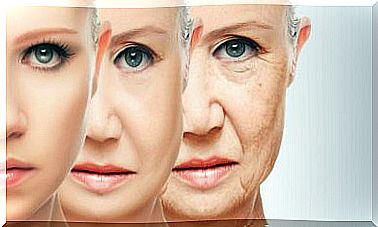Embarrassment: Different Forms And Their Effect

Embarrassment can be divided into different forms. Although they all have largely the same physiological consequences, they tend to differ in cognitive processing and conditions. Stay tuned – we’ll tell you why people are often embarrassed!
The acclaimed American psychoanalyst Joseph Burgo categorized embarrassment into four forms he considered central. According to him, people today are more open to talking about what embarrasses and shames them. He also tells us what effect these different forms of embarrassment have on us.
In his book published in 2018, Burgo presents four perspectives that we can use to look at this phenomenon. Before we take a closer look at their differences, let us first tell you what they all have in common:
- Redness of the face, neck or chest.
- Want to escape or avoid situations.
- The desire to disappear or change places.
- Difficulty looking the other person in the eye.
- Transient confusion.

Is embarrassment always negative?
Many have a very negative view of embarrassment. However, experts who have studied embarrassment see it as more varied in nature and its consequences more reasonable and less dramatic.
In any case, embarrassment is a relatively common part of everyday life that is hard to avoid. However, it may not be as harmful or negative as is usually thought. Burgo made some interesting suggestions in his book. Based on clinical observations over 35 years, he showed that there is a certain relationship between embarrassment and self-esteem.
In his view, the positive lessons we can learn by interacting with feelings of embarrassment can, in fact, erase the negative impact of the inhibitions it causes. The message conveyed to us by the author is both optimistic and descriptive.
We often don’t stop to listen and reflect on all aspects of our embarrassment. We tend to disguise our embarrassment because it is so unpleasant. This can be seen in different ways:
- Dependencies
- Perfectionism
- Self-pity
- Promiscuity
- Narcissism
Embarrassment: different types and their effect
One reason why it’s easier to discuss that topic today is that people are no longer so afraid to talk about things that embarrass them. People are no longer generally nearly as reluctant to talk about it as they used to be.
In today’s society, we are encouraged to show our true selves. We listen to advice that urges us to live in harmony with our qualities and ways of thinking. For this reason, people are more willing to look inside and tell what embarrasses them. The prevailing positive psychology encourages us to accept even the most unfavorable traits in ourselves optimistically.
Burgo believes embarrassment, in all its forms, has to be addressed on a daily basis. It is a psychological process that, like many other processes, manifests itself in everyday situations. For this reason, its treatment is a natural and acceptable phenomenon.
As mentioned above, Burgo believes we can distinguish four different forms of embarrassment.
1. One-sided love
You may have sometimes loved someone, but you didn’t echo your feelings or the person rejected you. You may feel rejected. In these situations, embarrassment often turns into humiliation.
It is known that children can begin to experience such embarrassment at an early stage. When babies don’t get the love their mothers need, after repeated attempts to get attention, they experience something very similar to embarrassment. The general term for this is “one-sided love”.
At the receptions, psychologists have found that children raised in this way – whose mothers have not expressed enough compassion for their child – can see clear pain as a result of such one-sided love. This negatively conditions a person’s normal development.

2. Unwanted disclosure
This is not such a common nuisance. It happens when people belittle others in public or when someone, for example, enters a room just when the other is naked.
In general, such embarrassment is – due to its low incidence and relative harmlessness – transient and not very significant for a person’s mental well-being. However, depending on a person’s susceptibility and the intensity of the emotion experienced, it may in some cases adversely affect the person or cause some form of trauma.
3. Failure to meet expectations or disappointment
By this we refer to the kind of embarrassment that arises when we fail to achieve some goal. A person is embarrassed because of the expectations he had created for himself or that other people had set for him.
This is similar to the previous form in terms of its significance and potential consequences. Typical situations that cause such embarrassment include:
- Inability to move forward at the expected pace at work.
- Failure of a friendship.
- Relationship failure.
4. Staying out
As social beings, it is quite normal for us to want to feel part of the crowd. This is true in almost every aspect of life: at work, in relationships, in friendships, etc. Sometimes, however, this feeling of belonging to a group can be threatened…
In these cases, good self-esteem and the ability to make valid assumptions would act as a defense mechanism against such embarrassment. A good attitude would be this: “ My friends didn’t invite me to their barbecue party today because after hours of my work, they probably think I’m too busy and don’t want to bother me. The reason is not that they would not want to be with me. ”

Finally
Embarrassment can be so exhausting and annoying that in some cases it can be a crucial factor in mental balance and personality development. In fact, some negative traits, such as narcissism or self-harm, are typically associated with a lack of resources that people are generally able to face in their embarrassment.
Denying something to a child may cause a slight embarrassment here, as it prevents the child’s innate desire to explore. However, such embarrassment usually does not last very long and has no long-term consequences.
Thus, unless it is a person whose childhood has been marked by abuse, rejection, or trauma, the small embarrassments accumulated in life should not mean permanent harm. Every parent should know that a child can be denied things from time to time.
However, some people have been severely affected by embarrassment or shame. If they decide to seek psychological help – which we warmly recommend – the therapist must pay close attention to their past and gradually find the person’s defense mechanisms after first gaining their trust.
Building trust takes time and effort. This is especially true of people who bury deep feelings of embarrassment, shame, and humiliation. It can be very shocking to them when other people criticize them. They may even fear that the therapist will condemn them.









